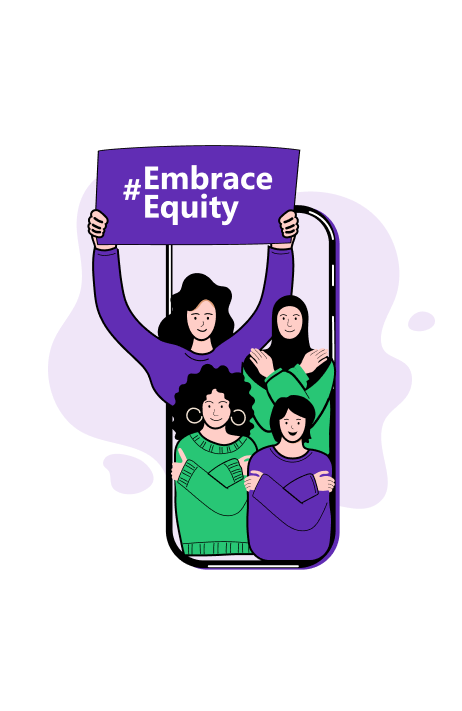
Empowering women online through tools for equity and cybersecurity
The internet has the potential to be a powerful tool for women’s empowerment. However, to harness its full potential, we need to address the digital gender gap and provide women with the tools and resources they need to access, utilize, and navigate the online world. The digital gender divide still persists, and women continue to face barriers in accessing and utilizing the digital landscape effectively. Tools for equity and cybersecurity can play a crucial role in this regard. By empowering women online, we can create a more inclusive, equitable, and secure online environment for everyone.
What are tools for equity?
Tools for equity refer to a range of digital resources and initiatives designed to address the gender gap in online access, skills, and participation. These tools are aimed at providing women with the knowledge, skills, and opportunities they need to participate fully in the digital world. They may include training programs, online resources, mentorship networks, online communities, and advocacy campaigns.
The benefits of empowering women online
Empowering women online through tools for equity and cybersecurity can bring about several benefits. First, it can promote gender equity by providing women with equal access to digital technologies and opportunities. Second, it can enhance women’s economic empowerment by providing them with the skills and knowledge needed to access online job opportunities, online markets, and online entrepreneurship. Third, it can foster women’s social and political empowerment by giving them a voice and a platform to express their views, connect with like-minded individuals, and participate in online activism. Finally, it can improve women’s safety and security online by protecting them from online harassment, cyberstalking, and other forms of online violence.
Empowering women through tools for equity
Digital literacy training
Digital literacy training is an essential tool for empowering women online. Many women face barriers in accessing and using digital technologies due to lack of skills and confidence. Digital literacy training can equip them with the necessary skills and knowledge to navigate online platforms, access information, and participate in online discussions. Such training can be provided through online resources, webinars, workshops, or mentorship programs.
Mentorship networks
Mentorship networks can be a valuable resource for women seeking guidance and support in navigating the online world. These networks can connect women with experienced professionals who can offer advice on building a strong online presence, networking, and accessing online resources. Mentorship networks can also provide opportunities for women to collaborate on projects and share experiences and insights.
Online communities
Online communities can be a powerful tool for creating a sense of belonging and support among women. These communities can provide a safe and inclusive space for women to connect, share experiences, and discuss issues relevant to their lives. Online communities can also facilitate knowledge sharing, collaboration, and skill-building.
Advocacy campaigns
Advocacy campaigns can play a crucial role in raising awareness of the digital gender gap and advocating for policy changes to address it. Such campaigns can highlight the benefits of gender-equitable digital access and call for initiatives to bridge the gap. Advocacy campaigns can also engage policymakers, businesses, and other stakeholders in creating a more inclusive online environment.
Empowering women through cybersecurity tools
- Password managers: Password managers can help women create and manage strong, unique passwords for all their online accounts. This can protect their personal and financial information from hackers and cybercriminals.
- Two-factor authentication: Two-factor authentication (2FA) adds an extra layer of security to online accounts by requiring users to provide two forms of identification to log in.
- Virtual private networks (VPNs): VPNs can encrypt internet traffic and hide IP addresses, making it more difficult for hackers and cybercriminals to access personal information.
- Antivirus software: Antivirus software can protect computers and mobile devices from malware, viruses, and other online threats. Antivirus software helps prevent cyber attacks and keep user devices and personal information safe.